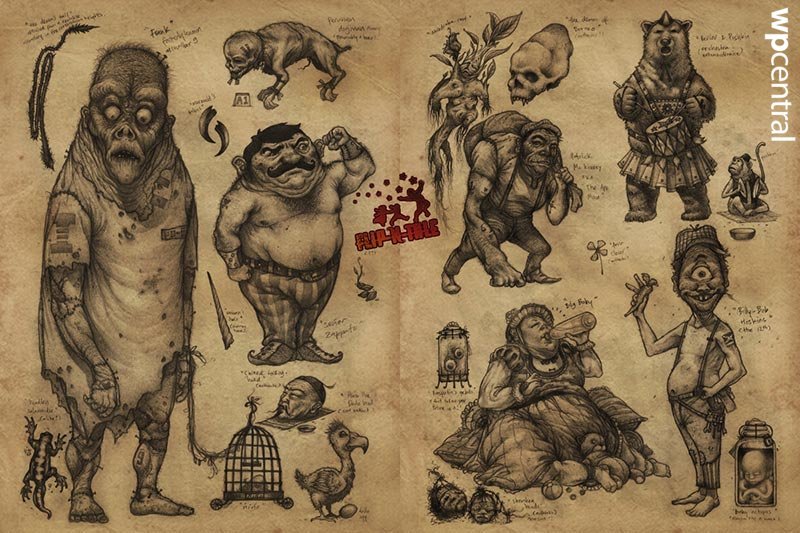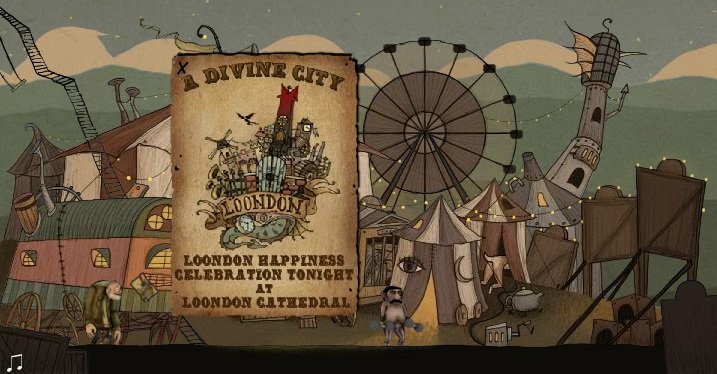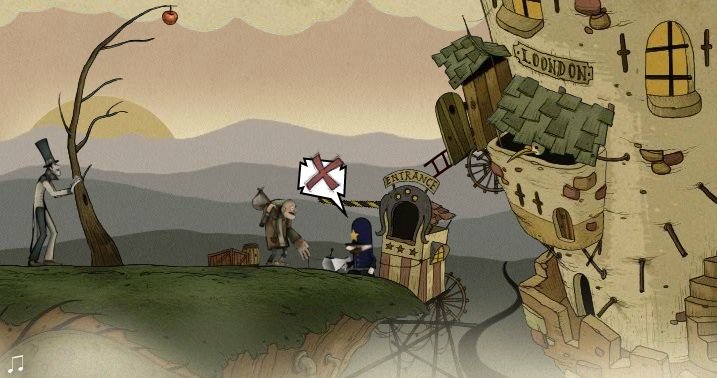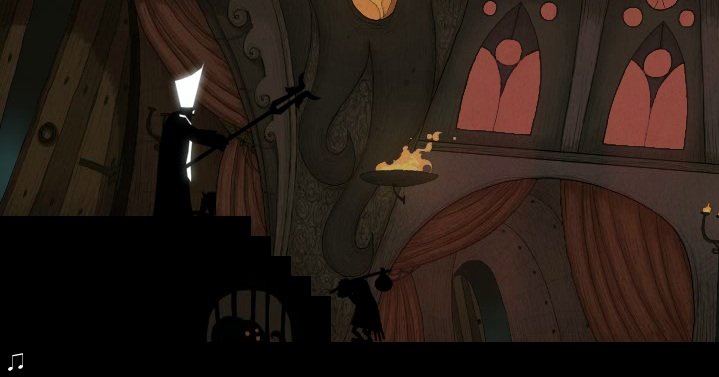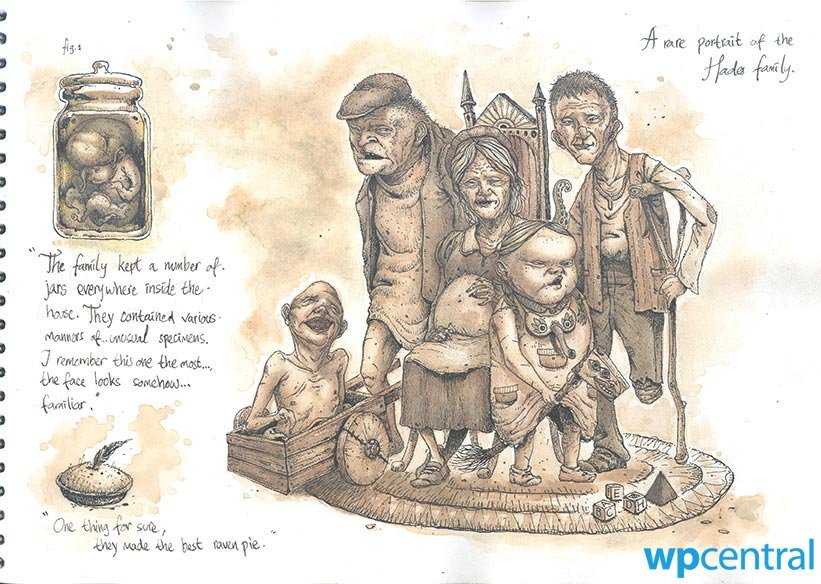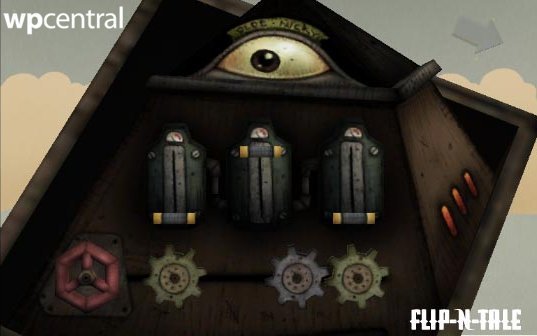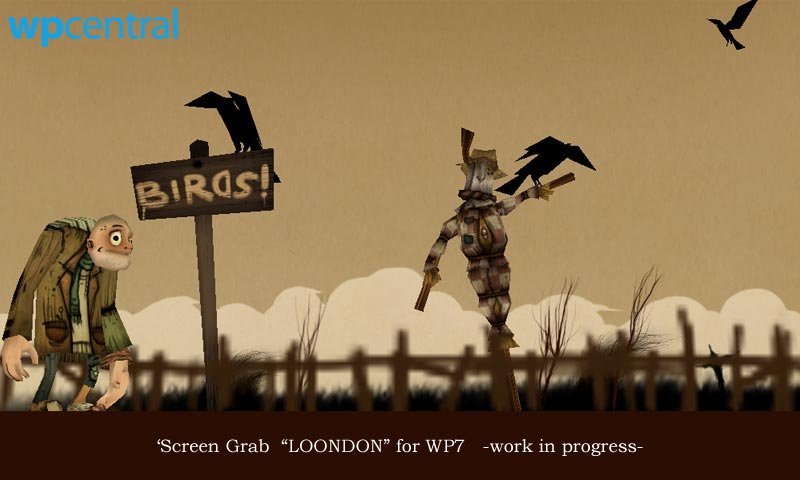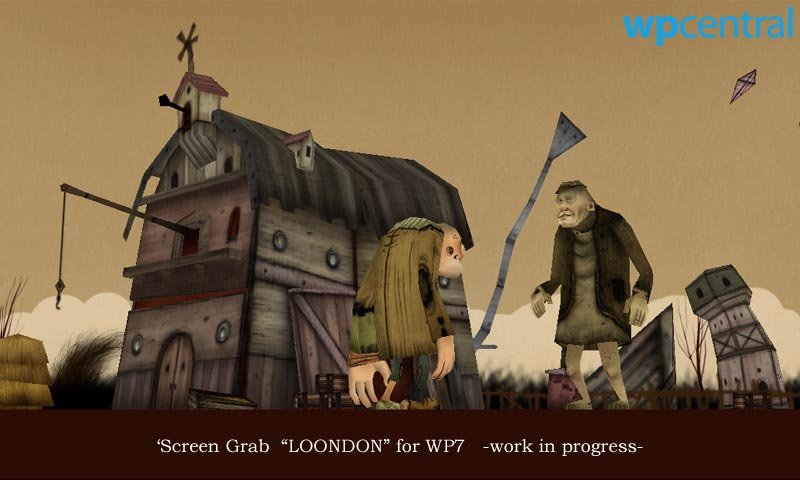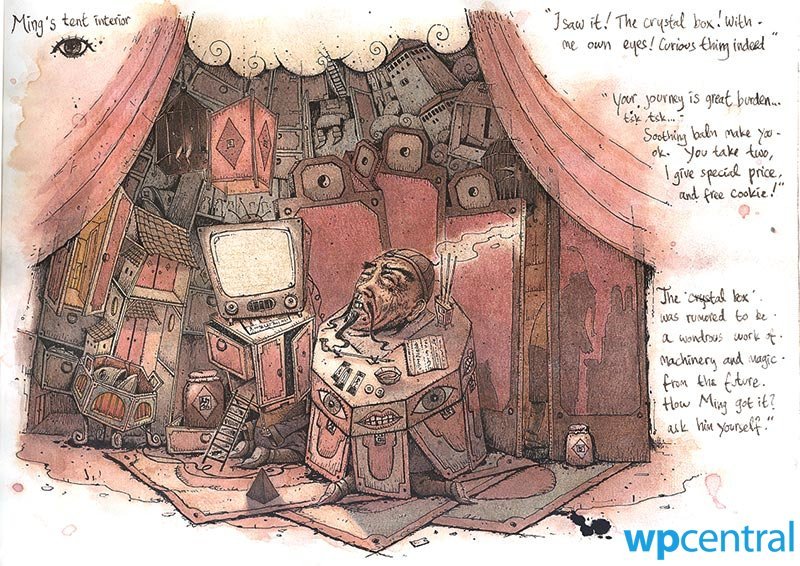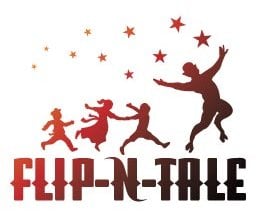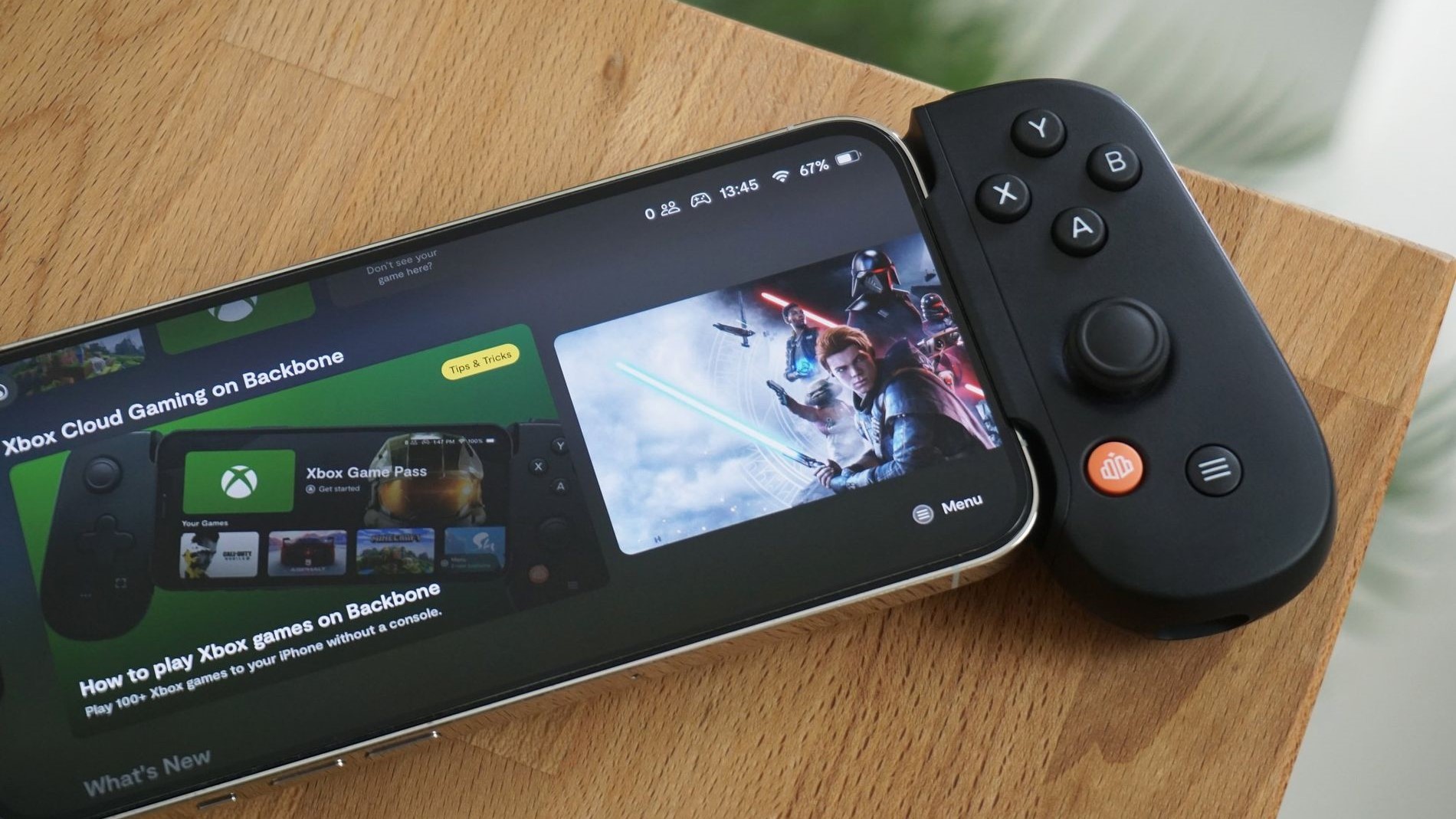Behind the scenes of vaporware Xbox Windows Phone game Loondon
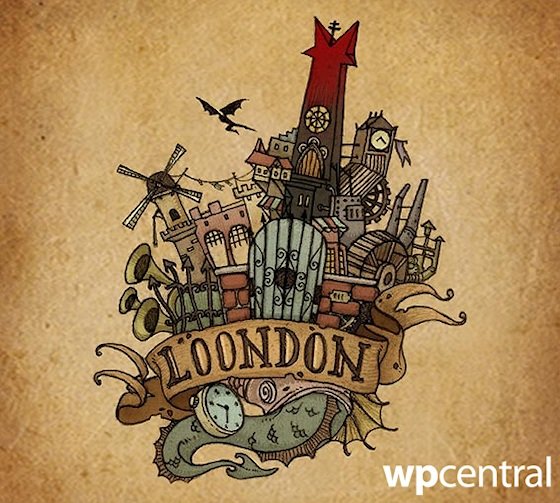
Very seldom does an Xbox for Windows Phone game get cancelled after its announcement. In fact, Microsoft hardly even announces new mobile games in advance any more, making practically every game that materializes a surprise (if its Achievements haven’t been discovered first).
It’s hard to imagine nowadays, but back in August of 2010, Microsoft announced a whopping 50 Xbox Live WP7 launch titles, most of which eventually made it to the Windows Phone Store. That said, several games on that list have never been released. A few stragglers like Real Soccer continue to trickle out even now, but we can safely assume that most or all of the rest have been quietly cancelled either by Microsoft or the original developers.
Now that the lengthy introduction is over, head past the break for our exclusive behind-the-scenes look at one such cancelled Xbox game: Loondon, from Indonesian developer Flip-n-Tale.
Flashy origins
Original concept art for the residents of the circus where Loondon's Jonah lives
The story of Loondon began in Indonesia in 2009, when two young programmers, Bima Ariasena and Luke Ferlius (who also does 3D art) decided to work together to create a Flash game on the web. At the time, Flash games were booming so it seemed like a way to make money doing something they loved. Luke recruited his friend Staven Andersen, a talented 2D artist (see his DeviantArt profile), completing the core team.
Now they just needed a name. Staven and Luke suggested they call the team Flip-n-Tale. The name has a double meaning: on one hand, it evokes the concept of flipping through a book to read the tales contained within. But it also represents ‘flipped’ or twisted tales, in keeping with Staven’s generally dark art style.
All the latest news, reviews, and guides for Windows and Xbox diehards.
The team’s first effort, Traffic Trouble, was a puzzle game in which players had to manually control city traffic by toggling traffic lights – sort of like Flight Control, but much simpler. A mostly pedestrian effort, its serious, dystopian backstory and quality artwork hinted at the team’s potential.
Loondon
Flash version screenshots
Flip-n-Tale released their sophomore title Loondon in February 2010. It quickly proved to be the team’s most popular and financially successful title, appearing on many Flash gaming websites like Kongregate and garnering numerous critical reviews around the web. Loondon would have even become a Microsoft-published Windows Phone 7 title if not for a handful of unfortunate events.
The name Loondon is a portmanteau of the words ‘London’ and ‘loony.’ The developers looked at the actual city of London as representing the beacon of “civilization, enlightenment, and humanity” throughout history.
Viewed through the context of colonialism, London and the British Empire considered themselves the ideal civilization, reducing other groups to the level of primitives and savages. Flip-n-tale’s home country Indonesia is no stranger to the effects of colonialism, though their oppressors were actually the Dutch, not the British. But ‘Hague’ is so much harder to combine with ‘loony.’
The Flash version of Loondon is not very complex as adventure games go. There is no failure condition, no wrong choices for players to make. Interactive objects and characters are always easily identifiable (not a bad thing), and the whole thing can be completed in less than half an hour. But its brief narrative (based on the tales of the Good Samaritan and the crucifixion of Jesus Christ) boasts a surprising gravitas. The central themes of self-sacrifice and ‘practicing what you preach’ resonate far more than expected from a Flash game.
The other reason Loondon caught on with web gamers is undoubtedly its beautiful and darkly atmospheric artwork. The player and most interactive objects are confined to a flat plane at the bottom of the screen – a smaller-scale approach than most adventure games. But the backgrounds are simply packed with details and make strong use of parallax scrolling. Every new scene is simply a treat to behold. In contrast, the 3D characters appear small and nondescript, a letdown given the quality of their actual concept illustrations.
The Windows Phone 7 port
Concept art for the Hades family, new characters for the WP7 version
Barely a month after Loondon launched, representatives from Microsoft and Kongregate met during a Game Developers Conference luncheon. Microsoft’s new smartphone platform, Windows Phone 7 needed games bearing the Xbox Live designation to release alongside it in October that year and the months to follow. Kongregate then put Flip-n-Tale in touch with Microsoft, and soon Loondon joined the other titles announced for launch.
WP7 Loondon (as I’ll call it) became the team’s first foray outside of Flash game development. A total of seven members worked on the port over a period of 10 months, communicating with their producer via Skype calls and email.
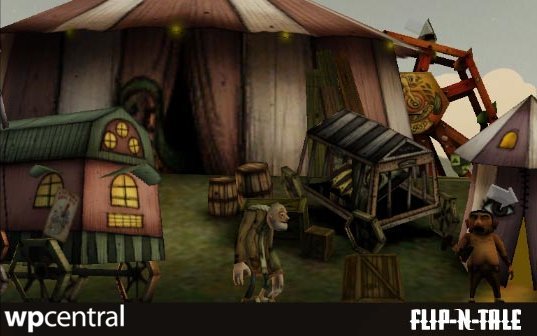
Above and at right: early 3D tests, including a new WP7 puzzle
The mobile version included a host of changes from the original version, most noticeably switching from a primarily 2D graphics engine to an entirely 3D one. The goal was to maintain the original version’s art style while giving it a more dynamic appearance. However, a lot of the beauty and detail of Staven’s designs was clearly lost in the process, seemingly playing to the Flash game’s weaknesses rather than its strengths.
On the other hand, the WP7 game also featured tangible improvements like new areas, characters, and puzzles. The script, originally written in rhyming but occasionally stilted English, received several revisions while maintaining the same overall narrative. To increase replay value, Flip-n-Tale added hidden tasks and 200 GamerScore worth of Achievements. Because these tasks were missable, they added a degree of challenge not present in the original game. The Friends Leaderboard compared time taken to complete the game.
The cancellation
Actual WP7 screenshots
Even with the new content and work the team put into WP7 Loondon, it could still be completed in about half an hour. This proved its undoing. Sometime around May 2011, the game’s producer at Microsoft informed Flip-n-Tale that it was simply too short to sell by itself. The new plan would have bundled Loondon along with Little Wheel, another adventure game announced at launch. The Loondon team, who had already completely finished their work on the game, agreed and waited for further news.
The weeks of waiting turned into months, and it became apparent that movement on the Loondon/Little Wheel compilation had come to a halt. Emails from Flip-n-Tale to their producer went unanswered. To this day, the team has never received official confirmation of their game’s cancellation, making the game technicaly vaporware. Like the Windows Phone ports of Yie Ar Kung Fu and Time Pilot, it remains in limbo, finished but never to be released.
What happened? In all likelihood, the game’s producer moved on to a different position within Microsoft. Such migrations are commonplace within the gigantic corporation, causing countless inefficiencies. Once the project’s original proponent stepped away from it, no one ever stepped back in to shepherd it along to release.
Even without a change in regimes, a lack of progress on Little Wheel may have played a part. With that game cancelled by its developer One Click Dog, the possibility of bundling WP7 Loondon with a similar title quickly evaporated. Could it have been released by itself? We have to remember that during WP7 Loondon’s production period, the lowest price for an Xbox Windows Phone game was $2.99. The 99 cent price point didn’t come along until April 2012.
Compared to other $2.99 games, a title that can be fully completed in half an hour doesn’t represent a tremendous value. And yet Ghostscape (an adventure game of equal length) launched in August 2011 at that very price. Blame either a double standard or different leadership for the discrepancy in how the games were treated. For what it’s worth, WP7 Loondon boasted a deeper story and better artwork than Ghostscape, making it no less deserving of a release.
Looking to the future
More WP7-specific concept art
Flip-n-tale received full payment for their work on WP7 Loondon, and as such they harbor no ill will against Microsoft. They would even be open to working with Windows Phone 8 or Windows 8 in the future, but their next project is an iOS game. They chose not to release another Flash project after changes in Google’s ad regulations apparently dried up the revenue from the Flash game market. If their iOS titles prove successful, Flip-n-Tale would like to branch out to other mobile platforms, consoles, and Steam.
It’s undoubtedly a shame that adventure fans will never be able to play the Xbox version of Loondon on Windows Phone. Yet thanks to the availability of the Flash version, we can at least experience the game in its original form – and for free.
Many thanks to the members of Flip-n-Tale for their cooperation in the making of this story. Stay tuned for a future installment concerning the fate of Little Wheel, WP7 Loondon’s would-be companion game.

Paul Acevedo was formerly a Games Editor at Windows Central. A lifelong gamer, he has written about videogames for over 15 years and reviewed over 350 games for our site. Follow him on Twitter @PaulRAcevedo. Don’t hate. Appreciate!
